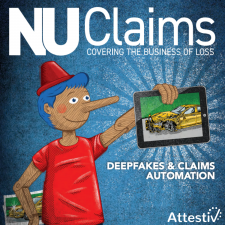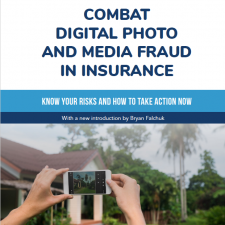Admittedly, it’s hard to write this article without mentioning the pandemic that has occupied everyone’s thoughts, as it is somewhat relevant that we may have hit a transformative point of how we approach social contact in our daily lives. By now, you’ve certainly seen guidelines on social distancing during this unprecedented time of caution. While somewhat unnerving and a massive change to the social norms we are all used to, the evolution of conducting our daily business in a touchless and self-service manner may be something that sticks after the dust settles and we return to our ordinary lives.
Practically speaking, it’s fair to ask why nearly all our day-to-day business transactions are not self-service and touchless. Consider how ordering merchandise online via a mobile device has become the standard, particularly during the holiday season when driving around and waiting in line is terribly cumbersome. Consider how far check deposit transactions have advanced, completing directly from your mobile phone in the comfort of your home. Why haven’t other processes in other industries followed suit?
Self-Service in Insurance
Contrast what happens when you interact with your insurance company. More often than not, you may find yourself conducting business either by phone or in-person, requiring interaction with a live person. While not always a bad thing, it’s not always necessary either. When there is money at stake during a claims process, it often necessitates a deeper level of interaction calling for inspectors to be physically present to validate the condition of assets being insured. If you find the process a bit intrusive in this day and age, you might rightfully wonder why technology has not made the process more lightweight.
Truth is, some leading-edge insurance providers have already implemented self-service processes for certain types of quotes, claims, inspections, renewals and other aspects of property and casualty insurance. However, deployment and adoption has not exactly been universal.
But who can blame an industry plagued with $40B in fraud in US P&C insurance alone, representing nearly 10% of claims payouts, for not embracing such an honor system? It’s not as if most individuals are untrustworthy – surely, the vast majority of us are very trustworthy. It’s the small minority of bad actors that necessitate the use of intermediaries in many instances.
New technologies for Insurance
Enter new technologies that can help weed out the fraud and bad actors, making self-service processes nearly tamper-proof. One technology that delivers a far-reaching impact in creating self-service, tamper-proof processes is distributed ledger or blockchain. Capturing the condition of insured assets, registering them on an immutable distributed ledger and preventing them from being altered at any point in the future represents a huge advance – one that only requires a mobile phone that is in virtually everyone’s pocket.
Fair enough, blockchain or distributed ledger cannot, by itself, prevent fraud. After all, how can you ensure what enters the ledger is valid? Instead, it is the combination of blockchain and other key supporting technologies that are finally enabling insurance transactions to utilize self-service without increasing the threat of fraud.
These supporting technologies include:
- Mobile phones – advanced camera, telemetry and identity capabilities
- Fake detection technologies – using AI to determine if images are being manipulated
- Heuristics and AI – detecting identity, location and metadata anomalies
The combination of these technologies with blockchain creates a set of processes for insurance that can address some of the more challenging issues the industry faces, including:
- Reducing incidents of fraud
- Lowering administrative and operational costs, and most importantly
- Creating convenient, self-service mobile user experiences for customers
Extra Benefit of Blockchain
One interesting tidbit regarding distributed ledger as a key enabler of self-service for insurance is that it is available in multiple deployments, including public ledgers. While the term “public” can stoke security fears as it did in the early days of public cloud, we now know that to be far from the truth, instead enabling rapid adoption by virtually any organization with security rivaling or better than local infrastructure. Similarly, the deeper implication of public blockchain is that now every insurance stakeholder can leverage this trusted self-service capability, ranging from the smallest broker/agent and the independent adjuster all the way to the large enterprise insurance carrier, opening its benefits across the entire ecosystem.
The Future is Self-Service
While little good can come from a pandemic, putting more thought into how we can make more processes touchless is one potential positive outlook. Addressing the need for more self-service and touchless transactions across the insurance industry puts us on the cusp of sweeping improvements and, luckily, the technology is here to make that a reality.






